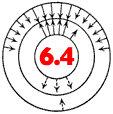er to D:
There is a map in the book, The End of Rude Handles by Jen Tynes, or the book is a map: an antiquarian, work-of-art map with places we recognize but do not know, the serpents, just surfacing, swimming from sea to sea.
No, that isn't clear, the map metaphor. Except it was a calendar hanging above my desk and I would find new names, new images I hadn't noticed before, with each daydreaming gaze, and the same with this book: frogs buried in strawberries, condoms bought from machines, a closet full of matches: the details drawn in. The desire to read and reread, catch what I first missed, finding those lines I wish I had mapped myself, like those from the title poem: your hands make jars everywhere; I burn my own mark into each animal long after thinking it.
How can she manage both lines in the same poem and make them both belong. The question she answers throughout the book. The maneuvering from image: to: image, thought: to: thought, even in the same sentence: Firemen eating fish dredged in flour in the parking lot, I give thanks you weren't sick with something when you got to know me. Perhaps it is just the surprise that makes them work, following directions to an unknown place and ending up at the unimagined. Or perhaps it is just the confidence with which she writes: I never question where she is headed.
My favorite sentence of the book, one I will just state, so good it doesn't need an idea to illustrate: Sometimes I spend an evening out, but like a lot of people some nights I just stare at the two-way glass and think about cancers.
And now I remember more clearly where I was going with the map: Tynes, almost inexplicably, with her non sequiturs (I never use that noun as a criticism), with her ambiguity, directs us to a specific place, a map to a portrait of the real, everyday world, more rural than urban, where cracked pinball machines are left on carports to dry, along with open caskets, but a place, too, where experimentation is welcome and language surprises, a place I don't often get to go, and back to that word I mentioned in the beginning, antiquarian, a word that suits this book: rare, valuable. A book I'll put on my shelf and hope people will notice. [ER]
